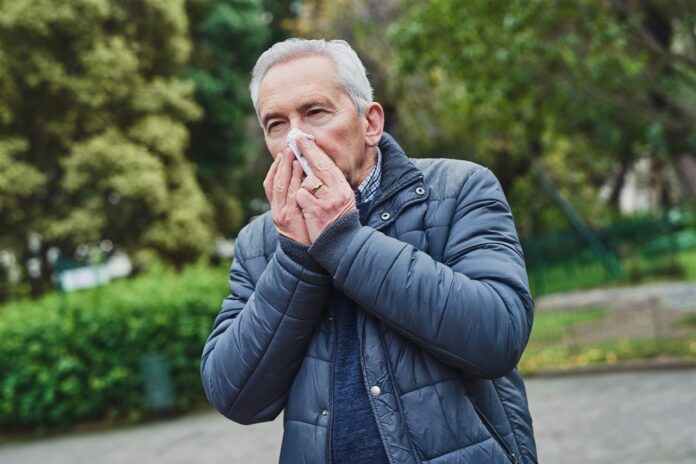COVID-19 is complicating the 2021 spring allergy season. From watery eyes to dry coughs, people are left wondering exactly what their symptoms mean.
“Many people are asking about the differences between COVID-19 and seasonal allergies,” says Dr. Luz Fonacier, president of the American College of Allergy, Asthma and Immunology (ACAAI). “While it isn’t always cut and dried, there are some clear differences. Certain symptoms are only seen in one or the other.”
If you are unsure what is ailing you, Fonacier suggests checking with a professional. Allergists are the best trained medical professionals to diagnose and treat allergies and asthma,” she said. “When in doubt, talk to an allergist.”
To help shed some light on the differences between COVID-19 and spring allergies, here are seven common symptoms and their possible causes.

- Coughing, chest tightness and shortness of breath are the calling cards of COVID-19. Unfortunately, these symptoms may also indicate an asthma-like allergic response. Many people who suffer from asthma also have allergies. If you are coughing this spring, consider the context. Is shortness of breath something you have experienced during previous spring seasons? Do you have additional symptoms, like fever or itchy eyes? The answers to these questions may help you distinguish the root cause.
- Fever does NOT occur with spring allergies. Fever may indicate COVID-19, the flu or – more rarely – the common cold. The combination of fever, coughing, shortness of breath and loss of smell or taste is a strong indicator of COVID-19 and must be taken seriously.
- Chills happen when the blood vessels in your skin constrict, causing you to feel cold without an obvious cause. Allergies do not cause chills, but COVID-19 does. If you are experiencing mild chills it is a good idea to self-isolate as a precaution. If you are experiencing chills in combination with shortness of breath, call your doctor to see if you should be tested for COVID-19.
- Sneezing and runny nose are rarely seen in COVID-19 cases. They are, however, very common for allergy sufferers. If the spring season has left you sneezing and sniffling in the past, then seasonal allergies are still the most likely culprit in 2021. You can talk to a board-certified allergist about treatment options, which may include over-the-counter or prescription medication, or immunotherapy.
- Itchy, watery eyes are the signature symptom of seasonal allergies. COVID-19 does not cause itchy eyes, but the practice of staying home may help by reducing your exposure to pollen. Avoidance, or the strategy of staying away from potential allergens, may help decrease symptoms. If avoidance is not cutting it, it may be time to speak with an allergist.
- Loss of smell and/or taste is another very common symptom of COVID-19. While allergies may lead to mild loss of smell, it is best to be on the safe side while the coronavirus continues to spread. If you experience these symptoms, call your doctor for advice.
- Nausea or vomiting are not typical allergy symptoms. They may indicate the common cold, the flu or COVID-19. If this symptom is mild, then self-isolating is a good course of action. If it becomes severe, and particularly if it is accompanied by fever and shortness of breath, you should call your doctor. He/she will be able to advise you on whether to get tested or seek medical help.
Understanding the differences between COVID-19 and seasonal allergies is key to keeping healthy this spring. Stay on top of the season by knowing your symptoms and understanding what is typical for you.
Courtesy of BrandPoint






